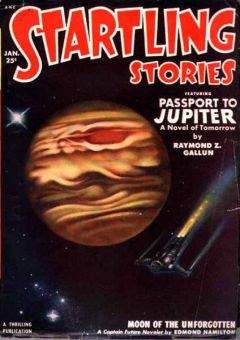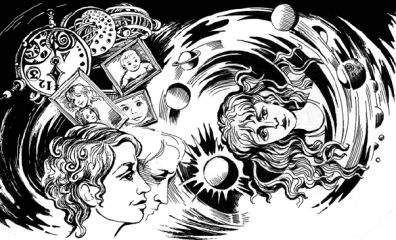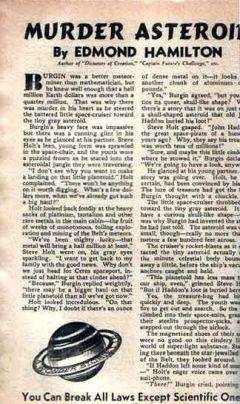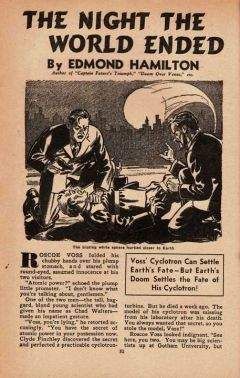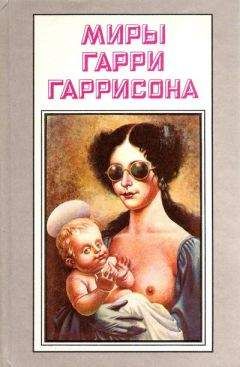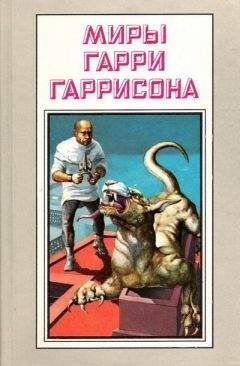Somerset Maugham - Sixty-Five Short Stories
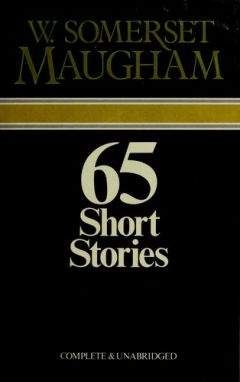
Скачивание начинается... Если скачивание не началось автоматически, пожалуйста нажмите на эту ссылку.
Жалоба
Напишите нам, и мы в срочном порядке примем меры.
Описание книги "Sixty-Five Short Stories"
Описание и краткое содержание "Sixty-Five Short Stories" читать бесплатно онлайн.
The days passed slowly. The whole household, intent on the wretched, tortured woman downstairs, lived in a state of unnatural excitement. She was like a victim that was being prepared for the savage rites of a bloody idolatry. Her terror numbed her. She could not bear to let Davidson out of her sight; it was only when he was with her that she had courage, and she hung upon him with a slavish dependence. She cried a great deal, and she read the Bible, and prayed. Sometimes she was exhausted and apathetic. Then she did indeed look forward to her ordeal, for it seemed to offer an escape, direct and concrete, from the anguish she was enduring. She could not bear much longer the vague terrors which now assailed her. With her sins she had put aside all personal vanity, and she slopped about her room, unkempt and dishevelled, in her tawdry dressing-gown. She had not taken off her night-dress for four days, nor put on stockings. Her room was littered and untidy. Meanwhile the rain fell with a cruel persistence. You felt that the heavens must at last be empty of water, but still it poured down, straight and heavy, with a maddening iteration, on the iron roof. Everything was damp and clammy. There was mildew on the walls and on the boots that stood on the floor. Through the sleepless nights the mosquitoes droned their angry chant.
'If it would only stop raining for a single day it wouldn't be so bad,' said Dr Macphail.
They all looked forward to the Tuesday when the boat for San Francisco was to arrive from Sydney. The strain was intolerable. So far as Dr Macphail was concerned, his pity and his resentment were alike extinguished by his desire to be rid of the unfortunate woman. The inevitable must be accepted. He felt he would breathe more freely when the ship had sailed. Sadie Thompson was to be escorted on board by a clerk in the governor's office. This person called on the Monday evening and told Miss Thompson to be prepared at eleven in the morning. Davidson was with her.
'I'll see that everything is ready. I mean to come on board with her myself.'
Miss Thompson did not speak.
When Dr Macphail blew out his candle and crawled cautiously under his mosquito curtains, he gave a sigh of relief.
'Well, thank God that's over. By this time tomorrow she'll be gone.'
'Mrs Davidson will be glad too. She says he's wearing himself to a shadow,' said Mrs Macphail. 'She's a different woman.'
'Who?'
'Sadie. I should never have thought it possible. It makes one humble.'
Dr Macphail did not answer, and presently he fell asleep. He was tired out, and he slept more soundly than usual.
He was awakened in the morning by a hand placed on his arm, and, starting up, saw Horn by the side of his bed. The trader put his finger on his mouth to prevent any exclamation from Dr Macphail and beckoned to him to come. As a rule he wore shabby ducks, but now he was barefoot and wore only the lava-lava of the natives. He looked suddenly savage, and Dr Macphail, getting out of bed, saw that he was heavily tattooed. Horn made him a sign to come on to the veranda. Dr Macphail got out of bed and followed the trader out.
'Don't make a noise,' he whispered. 'You're wanted. Put on a coat and some shoes. Quick.'
Dr Macphail's first thought was that something had happened to Miss Thompson.
'What is it? Shall I bring my instruments?'
'Hurry, please, hurry.'
Dr Macphail crept back into the bedroom, put on a waterproof over his pyjamas, and a pair of rubber-soled shoes. He rejoined the trader, and together they tiptoed down the stairs. The door leading out to the road was open and at it were standing half a dozen natives.
'What is it?' repeated the doctor.
'Come along with me,' said Horn.
He walked out and the doctor followed him. The natives came after them in a little bunch. They crossed the road and came on to the beach. The doctor saw a group of natives standing round some object at the water's edge. They hurried along, a couple of dozen yards perhaps, and the natives opened out as the doctor came up. The trader pushed him forwards. Then he saw, lying half in the water and half out, a dreadful object, the body of Davidson. Dr Macphail bent down-he was not a man to lose his head in an emergency-and turned the body over. The throat was cut from ear to ear, and in the right hand was still the razor with which the deed was done.
'He's quite cold,' said the doctor. 'He must have been dead some time.'
'One of the boys saw him lying there on his way to work just now and came and told me. Do you think he did it himself?'
'Yes. Someone ought to go for the police.'
Horn said something in the native tongue, and two youths started off.
'We must leave him here till they come,' said the doctor.
'They mustn't take him into my house. I won't have him in my house.'
'You'll do what the authorities say,' replied the doctor sharply. 'In point of fact I expect they'll take him to the mortuary.'
They stood waiting where they were. The trader took a cigarette from a fold in his lava-lava and gave one to Dr Macphail. They smoked while they stared at the corpse. Dr Macphail could not understand.
'Why do you think he did it?' asked Horn.
The doctor shrugged his shoulders. In a little while native police came along, under the charge of a marine, with a stretcher, and immediately afterwards a couple of naval officers and a naval doctor. They managed everything in a businesslike manner.
'What about the wife?' said one of the officers.
'Now that you've come I'll go back to the house and get some things on. I'll see that it's broken to her. She'd better not see him till he's been fixed up a little.'
'I guess that's right,' said the naval doctor.
When Dr Macphail went back he found his wife nearly dressed.
'Mrs Davidson's in a dreadful state about her husband,' she said to him as soon as he appeared. 'He hasn't been to bed all night. She heard him leave Miss Thompson's room at two, but he went out. If he's been walking about since then he'll be absolutely dead.'
Dr Macphail told her what had happened and asked her to break the news to Mrs Davidson.
'But why did he do it?' she asked, horror-stricken.
'I don't know.'
'But I can't. I can't.'
'You must.'
She gave him a frightened look and went out. He heard her go into Mrs Davidson's room. He waited a minute to gather himself together and then began to shave and wash. When he was dressed he sat down on the bed and waited for his wife. At last she came.
'She wants to see him,' she said.
'They've taken him to the mortuary. We'd better go down with her. How did she take it?'
'I think she's stunned. She didn't cry. But she's trembling like a leaf.'
'We'd better go at once.'
When they knocked at her door Mrs Davidson came out. She was very pale, but dry-eyed. To the doctor she seemed unnaturally composed. No word was exchanged, and they set out in silence down the road. When they arrived at the mortuary Mrs Davidson spoke.
'Let me go in and see him alone.'
They stood aside. A native opened a door for her and closed it behind her. They sat down and waited. One or two white men came and talked to them in undertones. Dr Macphail told them again what he knew of the tragedy. At last the door was quietly opened and Mrs Davidson came out. Silence fell upon them.
'I'm ready to go back now,' she said.
Her voice was hard and steady. Dr Macphail could not understand the look in her eyes. Her pale face was very stern. They walked back slowly, never saying a word, and at last they came round the bend on the other side of which stood their house. Mrs Davidson gave a gasp, and for a moment they stopped still. An incredible sound assaulted their ears. The gramophone which had been silent for so long was playing, playing ragtime loud and harsh.
'What's that?' cried Mrs Macphail with horror.
'Let's go on,' said Mrs Davidson.
They walked up the steps and entered the hall. Miss Thompson was standing at her door, chatting with a sailor. A sudden change had taken place in her. She was no longer the cowed drudge of the last days. She was dressed in all her finery, in her white dress, with the high shiny boots over which her fat legs bulged in their cotton stockings; her hair was elaborately arranged; and she wore that enormous hat covered with gaudy flowers. Her face was painted, her eyebrows were boldly black, and her lips were scarlet. She held herself erect. She was the flaunting queen that they had known at first. As they came in she broke into a loud, jeering laugh; and then, when Mrs Davidson involuntarily stopped, she collected the spittle in her mouth and spat. Mrs Davidson cowered back, and two red spots rose suddenly to her cheeks. Then, covering her face with her hands, she broke away and ran quickly up the stairs. Dr Macphail was outraged. He pushed past the woman into her room.
'What the devil are you doing?' he cried. 'Stop that damned machine.'
He went up to it and tore the record off. She turned on him.
'Say, doc, you can that stuff with me. What the hell are you doin' in my room?'
'What do you mean?' he cried. 'What d'you mean?'
She gathered herself together. No one could describe the scorn of her expression or the contemptuous hatred she put into her answer.
'You men! You filthy, dirty pigs! You're all the same, all of you. Pigs! Pigs!'
Dr Macphail gasped. He understood.
The Fall of Edward Barnard
Bateman Hunter slept badly. For a fortnight on the boat that brought him from Tahiti to San Francisco he had been thinking of the story he had to tell, and for three days on the train he had repeated to himself the words in which he meant to tell it. But in a few hours now he would be in Chicago, and doubts assailed him. His conscience, always very sensitive, was not at ease. He was uncertain that he had done all that was possible, it was on his honour to do much more than the possible, and the thought was disturbing that, in a matter which so nearly touched his own interest, he had allowed his interest to prevail over his quixotry. Self-sacrifice appealed so keenly to his imagination that the inability to exercise it gave him a sense of disillusion. He was like the philanthropist who with altruistic motives builds model dwellings for the poor and finds that he has made a lucrative investment. He cannot prevent the satisfaction he feels in the ten per cent which rewards the bread he had cast upon the waters, but he has an awkward feeling that it detracts somewhat from the savour of his virtue. Bateman Hunter knew that his heart was pure, but he was not quite sure how steadfastly, when he told her his story, he would endure the scrutiny of Isabel Longstaffe's cool grey eyes. They were far-seeing and wise. She measured the standards of others by her own meticulous uprightness and there could be no greater censure than the cold silence with which she expressed her disapproval of a conduct that did not satisfy her exacting code. There was no appeal from her judgement, for, having made up her mind, she never changed it. But Bateman would not have had her different. He loved not only the beauty of her person, slim and straight, with the proud carriage of her head, but still more the beauty of her soul. With her truthfulness, her rigid sense of honour, her fearless outlook, she seemed to him to collect in herself all that was most admirable in his country-women. But he saw in her something more than the perfect type of the American girl, he felt that her exquisiteness was peculiar in a way to her environment, and he was assured that no city in the world could have produced her but Chicago. A pang seized him when he remembered that he must deal so bitter a blow to her pride, and anger flamed up in his heart when he thought of Edward Barnard.
But at last the train steamed in to Chicago and he exulted when he saw the long streets of grey houses. He could hardly bear his impatience at the thought of State and Wabash with their crowded pavements, their hustling traffic, and their noise. He was at home. And he was glad that he had been born in the most important city in the United States. San Francisco was provincial, New York was effete; the future of America lay in the development of its economic possibilities, and Chicago, by its position and by the energy of its citizens, was destined to become the real capital of the country.
'I guess I shall live long enough to see it the biggest city in the world,' Bateman said to himself as he stepped down to the platform.
His father had come to meet him, and after a hearty handshake, the pair of them, tall, slender, and well-made, with the same fine, ascetic features and thin lips, walked out of the station. Mr Hunter's automobile was waiting for them and they got in. Mr Hunter caught his son's proud and happy glance as he looked at the street.
'Glad to be back, son?' he asked.
'I should just think I was,' said Bateman.
His eyes devoured the restless scene.
'I guess there's a bit more traffic here than in your South Sea island,' laughed Mr Hunter. 'Did you like it there?'
'Give me Chicago, dad,' answered Bateman.
'You haven't brought Edward Barnard back with you.'
'No.'
'How was he?'
Bateman was silent for a moment, and his handsome, sensitive face darkened.
'I'd sooner not speak about him, dad,' he said at last.
'That's all right, my son. I guess your mother will be a happy woman today.'
They passed out of the crowded streets in the Loop and drove along the lake till they came to the imposing house, an exact copy of a chateau on the Loire, which Mr Hunter had built himself some years before. As soon as Bateman was alone in his room he asked for a number on the telephone. His heart leaped when he heard the voice that answered him.
'Good morning, Isabel,' he said gaily.
'Good morning, Bateman.'
'How did you recognize my voice?'
'It is not so long since I heard it last. Besides, I was expecting you.'
'When may I see you?'
'Unless you have anything better to do perhaps you'll dine with us tonight.'
'You know very well that I couldn't possibly have anything better to do.'
'I suppose that you're full of news?'
He thought he detected in her voice a note of apprehension.
'Yes,' he answered.
'Well, you must tell me tonight. Good-bye.'
She rang off. It was characteristic of her that she should be able to wait so many unnecessary hours to know what so immensely concerned her. To Bateman there was an admirable fortitude in her restraint.
At dinner, at which beside himself and Isabel no one was present but her father and mother, he watched her guide the conversation into the channels of an urbane small-talk, and it occurred to him that in just such a manner would a marquise under the shadow of the guillotine toy with the affairs of a day that would know no morrow. Her delicate features, the aristocratic shortness of her upper lip, and her wealth of fair hair suggested the marquise again, and it must have been obvious, even if it were not notorious, that in her veins flowed the best blood in Chicago. The dining-room was a fitting frame to her fragile beauty, for Isabel had caused the house, a replica of a palace on the Grand Canal at Venice, to be furnished by an English expert in the style of Louis XV; and the graceful decoration linked with the name of that amorous monarch enhanced her loveliness and at the same time acquired from it a more profound significance. For Isabel's mind was richly stored, and her conversation, however light, was never flippant. She spoke now of the Musicale to which she and her mother had been in the afternoon, of the lectures which an English poet was giving at the Auditorium, of the political situation, and of the Old Master which her father had recently bought for fifty thousand dollars in New York. It comforted Bateman to hear her. He felt that he was once more in the civilized world, at the centre of culture and distinction; and certain voices, troubling and yet against his will refusing to still their clamour, were at last silent in his heart.
Подписывайтесь на наши страницы в социальных сетях.
Будьте в курсе последних книжных новинок, комментируйте, обсуждайте. Мы ждём Вас!
Похожие книги на "Sixty-Five Short Stories"
Книги похожие на "Sixty-Five Short Stories" читать онлайн или скачать бесплатно полные версии.
Мы рекомендуем Вам зарегистрироваться либо войти на сайт под своим именем.
Отзывы о "Somerset Maugham - Sixty-Five Short Stories"
Отзывы читателей о книге "Sixty-Five Short Stories", комментарии и мнения людей о произведении.





